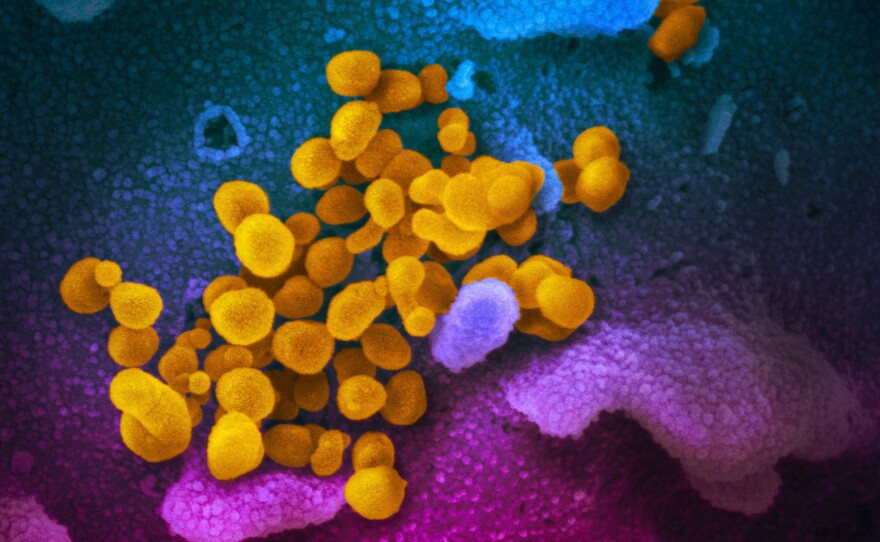As scientists around the world race to discover a vaccine for COVID-19, researchers in San Diego say they have found a vulnerability in the virus. The study came out Friday in the peer-reviewed journal Science.
Antibodies are proteins the body's immune system produces to identify and take out viruses. But sometimes these antibodies can’t kill a virus. And even if a certain antibody is effective, it may not bind in the right location to work.
Scripps Research Institute structural biologist Ian Wilson said he and his team found a location where an antibody can stick to the coronavirus. They tested out an antibody from a 2006 SARS patient on the novel coronavirus.
“The knowledge of conserved sites like this can aid in structure-based design of vaccines and therapeutics against SARS-CoV-2, and these would also protect against other coronaviruses — including those that may emerge in the future,” Wilson said.
RELATED: UC Hospitals Begin Recruiting For Coronavirus Drug Trials
Wilson said so far in the study, this antibody doesn’t kill the coronavirus. But, he said the research offers a road map to scientists on where they should send antibodies that can stop the virus.
The virus "will keep going down the road till it gets to its final destination … inside our human cells and lungs," Wilson said. "So what the antibodies do is put up a roadblock. And we want to see where’s the best place to put up a roadblock."
“Our ultimate goal here is to obtain structural information on antibodies and their binding sites, and use that to guide SARS-CoV-2 vaccine design, just as our lab has done with influenza and HIV,” said the study’s co-first author, Nicholas Wu.
Labs at Scripps Research and throughout the world are hoping to collect more antibodies, via blood donations, from people who have recovered from COVID-19, so scientists can continue this work.
Wilson says finding these locations where antibodies can stick to the coronavirus is a first step, but an important one, in creating a vaccine.







